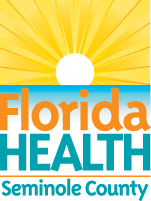It's a New Day in Public Health.
The Florida Department of Health works to protect, promote, and improve the health of all people in Florida through integrated state, county, and community efforts.
Tobacco Free Seminole Partnership Exposes the Risks of Secondhand Smoke
May 11, 2016
May 11, 2016
Tobacco Free Seminole Partnership Exposes the Risks of Secondhand Smoke
Eighth Annual Tobacco Free Florida Week Aims to Break the Myth that Secondhand Smoke is Harmless
Contact: Tiffani McDaniel
Media Desk: 407-665-3374 (office) and 321-200-7805 (cell)
Sanford, Fla.– The Florida Department of Health’s Tobacco Free Florida program and Tobacco Free Seminole Partnership are launching a new initiative, Secondhand Smoke Exposed, as part of the eighth annual Tobacco Free Florida Week, taking place May 8-14, to educate Seminole County residents about the dangers of secondhand smoke.
This year’s theme, Secondhand Smoke Exposed, focuses on dispelling the common myth that secondhand smoke is harmless. The fact is that breathing even small amounts of secondhand smoke can be dangerous. Seminole County businesses are supporting Tobacco Free Florida Week at their worksite by educating their employees about the health risk of secondhand smoke and displaying informative posters.
“Many people are unaware of how detrimental secondhand smoke exposure can be to one’s health,” said Dr. Swannie Jett, Health Officer for DOH-Seminole. “The goal of this year’s Tobacco Free Florida Week is to make sure all Floridians are aware of the dangers of secondhand smoke. We encourage Seminole County residents to join the fight against tobacco and help make Florida a healthier state for all.”
Tobacco Free Seminole Partnership supports local tobacco-related interventions, including raising public awareness about subject areas related to secondhand smoke. From guiding a multiunit housing property through the process of going smoke-free, to presenting the benefits of a tobacco free college campus, representatives in Seminole County offer various services.*
In 2016, two local Seminole County businesses adopted a Tobacco Free Policy at their worksite, Edibles ETC and CCS Restoration. Both employers offer tobacco free cessation services to their employees in collaboration with the Area Health Education Center.
Despite the growing trend of smoke-free policies and the substantial decrease of smokers in the state, many of Seminole County’s most vulnerable are still involuntarily affected by secondhand smoke, which has hundreds of toxic chemicals including about 70 that are known to cause cancer. Secondhand smoke greatly increases the risk of lung cancer, which is Florida’s number-one cancer killer. Each year, primarily due to secondhand smoke exposure, an estimated 7,300 non-smoking Americans die of lung cancer.
May is also Asthma and Allergy Awareness Month, and tobacco smoke is one of the most common asthma triggers. Children with asthma who are exposed to secondhand smoke are likely to experience more frequent and more severe attacks, which can put their lives in danger. In fact, more than 40 percent of children who go to the emergency room for asthma attacks live with smokers.
Residents in Seminole County and throughout the state benefit from the Florida Clean Indoor Air Act (FCIAA), which was amended in 2003 to prohibit smoking in indoor workplaces. The Florida Department of Health has a dedicated phone line (1-800-337-3742) where you can report violations to the FCIAA. Floridians can help protect themselves and their families by reporting unlawful smoking, while making the state an even better place to live.
If you smoke, the best thing you can do to protect your loved ones is to quit. Floridians who want to quit smoking are encouraged to use Tobacco Free Florida’s free and proven-effective services. More information is available at tobaccofreeflorida.com.
*Editor’s Note: Tobacco Free Florida’s and Tobacco Free Seminole Partnership’s assistance with local tobacco free policy efforts are not lobbying, but are services to build awareness and support of jurisdictional voluntary initiatives to improve the health of Floridians.
###





Connect with DOH